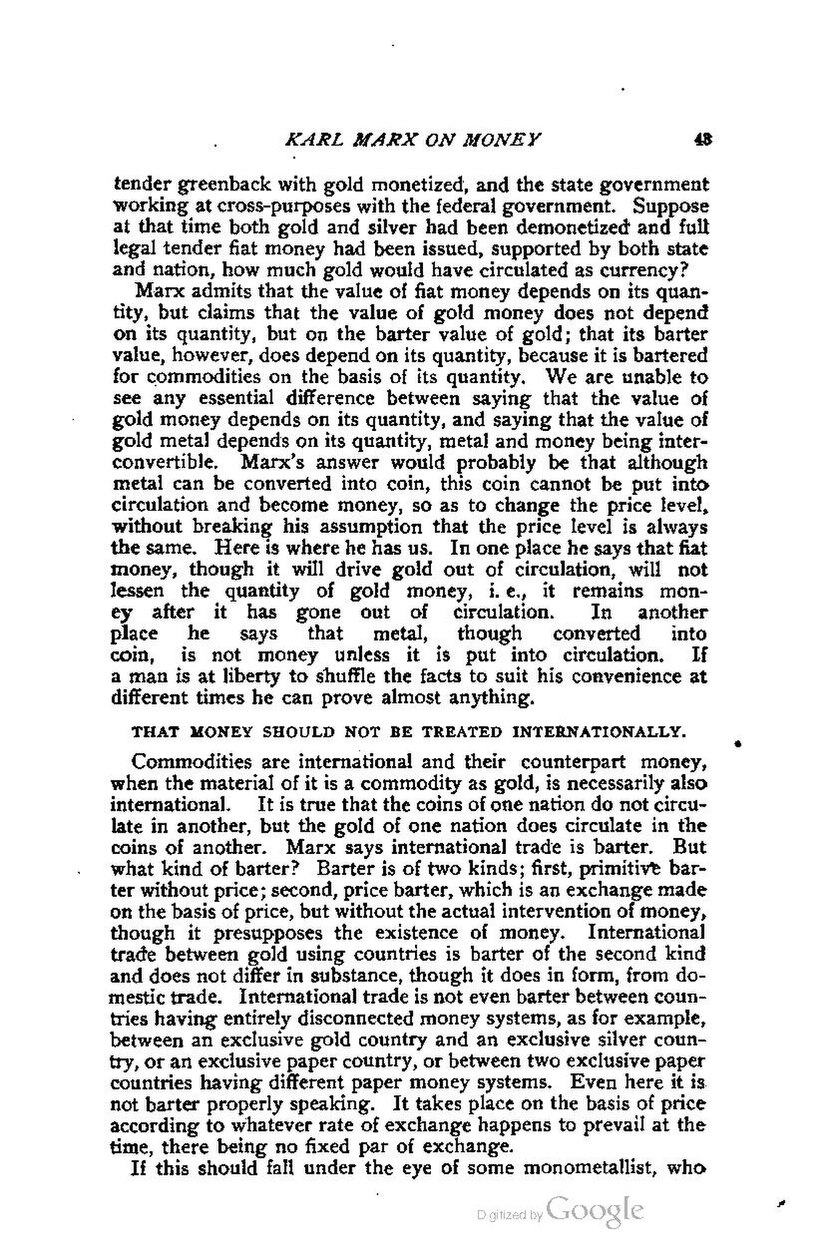tender greenback with gold monetized, and the state government working at cross-purposes with the federal government. Suppose at that time both gold and silver had been demonetized and full legal tender fiat money had been issued, supported by both state and nation, how much gold would have circulated as currency?
Marx admits that the value of fiat money depends on its quantity, but claims that the value of gold money does not depend on its quantity, but on the barter value of gold; that its barter value, however, does depend on its quantity, because it is bartered for commodities on the basis of its quantity. We are unable to see any essential difference between saying that the value of gold money depends on its quantity, and saying that the value of gold metal depends on its quantity, metal and money being inter-convertible. Marx's answer would probably be that although metal can be converted into coin, this coin cannot be put into circulation and become money, so as to change the price level, without breaking his assumption that the price level is always the same. Here is where he has us. In one place he says that fiat money, though it will drive gold out of circulation, will not lessen the quantity of gold money, i. e., it remains money after it has gone out of circulation. In another place he says that metal, though converted into coin, is not money unless it is put into circulation. If a man is at liberty to shuffle the facts to suit his convenience at different times he can prove almost anything.
THAT MONEY SHOULD NOT BE TREATED INTERNATIONALLY.
Commodities are international and their counterpart money, when the material of it is a commodity as gold, is necessarily also international. It is true that the coins of one nation do not circulate in another, but the gold of one nation does circulate in the coins of another. Marx says international trade is barter. But what kind of barter? Barter is of two kinds; first, primitive barter without price; second, price barter, which is an exchange made on the basis of price, but without the actual intervention of money, though it presupposes the existence of money. International trade between gold using countries is barter of the second kind and does not differ in substance, though it does in form, from domestic trade. International trade is not even barter between countries having entirely disconnected money systems, as for example, between an exclusive gold country and an exclusive silver country, or an exclusive paper country, or between two exclusive paper countries having different paper money systems. Even here it is not barter properly speaking. It takes place on the basis of price according to whatever rate of exchange happens to prevail at the time, there being no fixed par of exchange.
If this should fall under the eye of some monometallist, who
